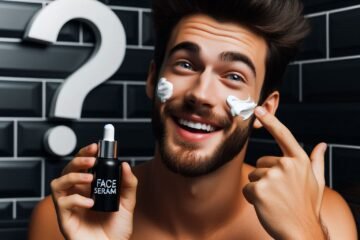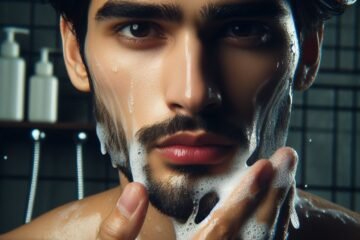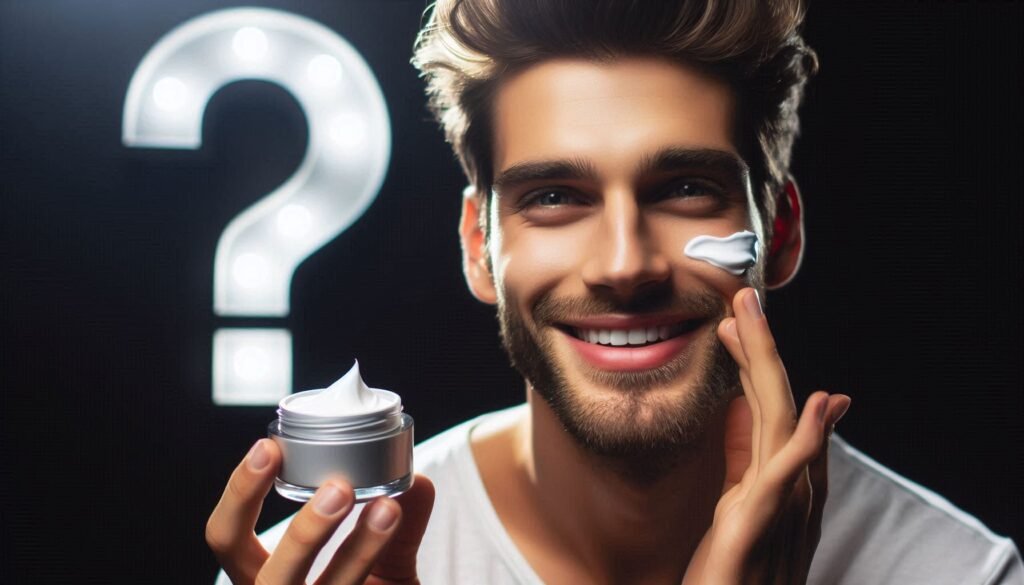
Table Of Contents:
(Click And Go Directly)
Choosing the right moisturizer can feel overwhelming, especially with so many options available. A good moisturizer is essential for maintaining healthy skin, but it’s important to remember that not all moisturizers are created equal or suitable for every skin type.
This guide will help you understand how to choose a moisturizer that suits your skin type and needs, ensuring you achieve the best results.
1. What Is A Moisturizer?
A moisturizer is a skincare product designed to hydrate and protect the skin by preventing water loss and maintaining the skin’s natural moisture balance. It typically contains a blend of water, oils, and various active ingredients that nourish the skin, improve its texture, and enhance its overall appearance. Moisturizers come in different forms, including creams, lotions, gels, and ointments, catering to various skin types and concerns.
2. Why You Need A Moisturizer For Your Skin

Moisturizing is a crucial step in any skincare routine. Here are some reasons why it matters:
- Prevents Dryness: Moisturizing maintains the skin’s moisture balance, preventing dryness or irritation from environmental factors.
- Maintains Skin’s Elasticity: Regular moisturizing keeps the skin soft and supple, improving its elasticity and making it less prone to cracking or developing fine lines.
- Protects Skin Barrier: Moisturizers create a protective barrier on the skin, shielding it from pollutants, bacteria, and other harmful elements in the environment.
- Reduces Aging Signs: Hydrated skin is less prone to wrinkles. Moisturizers with hyaluronic acid or peptides can help reduce aging signs over time.
- Balances Oil Production: Even oily or acne-prone skin needs moisture. When skin is properly hydrated, it may produce less excess oil, reducing breakouts and giving a healthier appearance.
- Enhances Skin Healing: Proper hydration supports the skin’s ability to repair itself, aiding in the recovery of minor damage such as irritation, inflammation, or blemishes.
- Boosts Overall Skin Health: By replenishing essential nutrients and maintaining moisture, moisturizers contribute to long-term skin health, keeping it glowing and youthful.
3. Understand Different Types Of Moisturizers
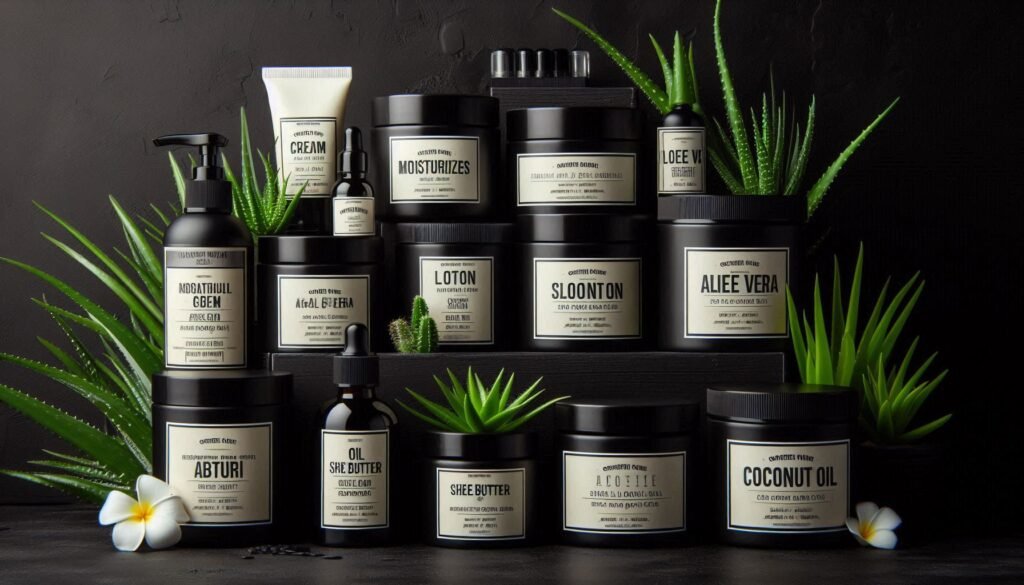
Moisturizers come in a variety of formulations, each designed to address specific skin needs. Here’s a breakdown of the most common types of moisturizers and their benefits:
1. Lotion-Based Moisturizers
Lightweight and quickly absorbed, lotions are ideal for oily or combination skin. They provide hydration without leaving a greasy residue.
2. Cream-Based Moisturizers
Thicker than lotions, creams are best for dry or sensitive skin. They offer deeper hydration and help lock in moisture.
3. Gel-Based Moisturizers
Gel moisturizers are often water-based, making them perfect for oily and acne-prone skin. They deliver hydration without clogging pores or feeling heavy.
4. Oil-Based Moisturizers
These are the heaviest moisturizers, usually containing oils like petroleum or lanolin. Ointments are great for very dry or damaged skin as they create a protective barrier to prevent water loss.
5. Balms-Based Moisturizers
Similar to ointments but slightly less greasy, balms provide intense hydration and are excellent for targeted areas such as lips or hands.
4. Understand Different Types Of Skins

Before selecting a moisturizer, it’s essential to know your skin type. This will help you choose the right product tailored to your needs. Here are the main skin types:
1. Oily Skin
- Characteristics: Shiny appearance, enlarged pores, prone to acne.
- Best Moisturizers: Lightweight, oil-free, and non-comedogenic (won’t clog pores).
2. Dry Skin
- Characteristics: Flaky, rough, tight feeling, may show signs of irritation.
- Best Moisturizers: Thick creams or ointments that provide deep hydration.
3. Combination Skin
- Characteristics: Oily in some areas (usually the T-zone) and dry in others (cheeks).
- Best Moisturizers: Balanced formulations that hydrate dry areas without making oily areas worse.
4. Sensitive Skin
- Characteristics: Easily irritated, prone to redness or rashes.
- Best Moisturizers: Fragrance-free and hypoallergenic products that soothe and protect.
5. Normal Skin
- Characteristics: Balanced moisture, not too oily or dry.
- Best Moisturizers: Lightweight moisturizers that maintain hydration without excess oil.
4. Key Ingredients In A Moisturizer For Skin
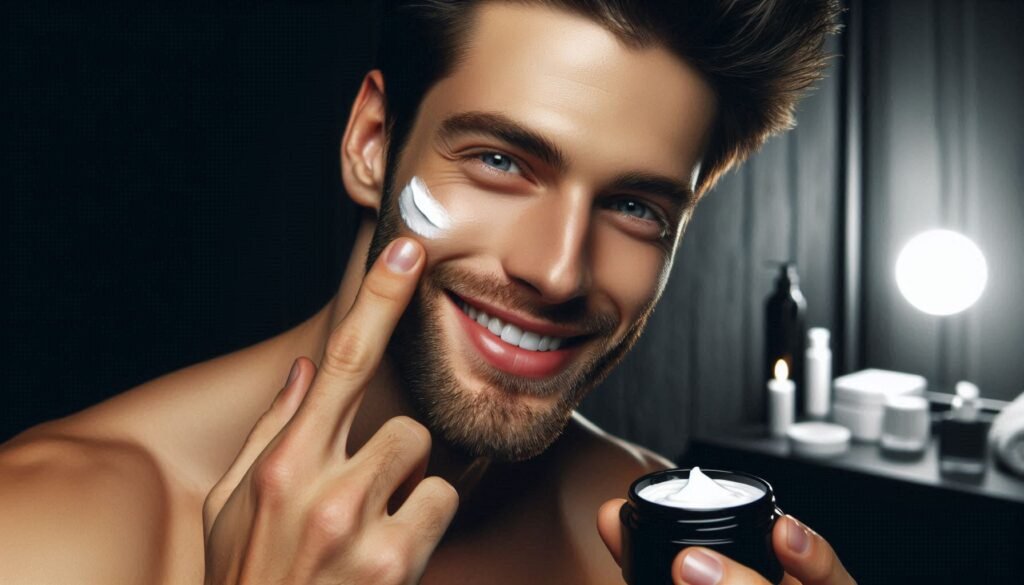
Once you know your skin type, you can select a moisturizer based on its ingredients. Here are some beneficial ingredients to consider:
1. Hyaluronic Acid
A humectant that draws moisture into the skin. Great for all skin types, especially dry skin.
2. Glycerin
A natural humectant that helps to keep skin moisturized by drawing water from the environment.
3. Ceramides
Lipids that help restore and maintain the skin barrier. Beneficial for dry and sensitive skin.
4. Aloe Vera
Known for its soothing properties, aloe vera hydrates while calming irritated skin.
5. Shea Butter
Rich in fatty acids, it provides deep hydration and nourishment for dry skin.
6. Salicylic Acid
Ideal for oily and acne-prone skin, it helps to exfoliate and keep pores clear.
Here’s a table of all the key ingredients to look for in a moisturizer for your skin:
| Ingredient | What It Does |
|---|---|
| Hyaluronic Acid | Attracts moisture to keep skin hydrated. |
| Glycerin | Helps to draw moisture into the skin. |
| Ceramides | Strengthens the skin barrier and locks in moisture. |
| Aloe Vera | Soothes and hydrates the skin. |
| Shea Butter | Deeply moisturizes and nourishes dry skin. |
| Salicylic Acid | Exfoliates and prevents clogged pores. |
6. What To Avoid In Moisturizers For Skin
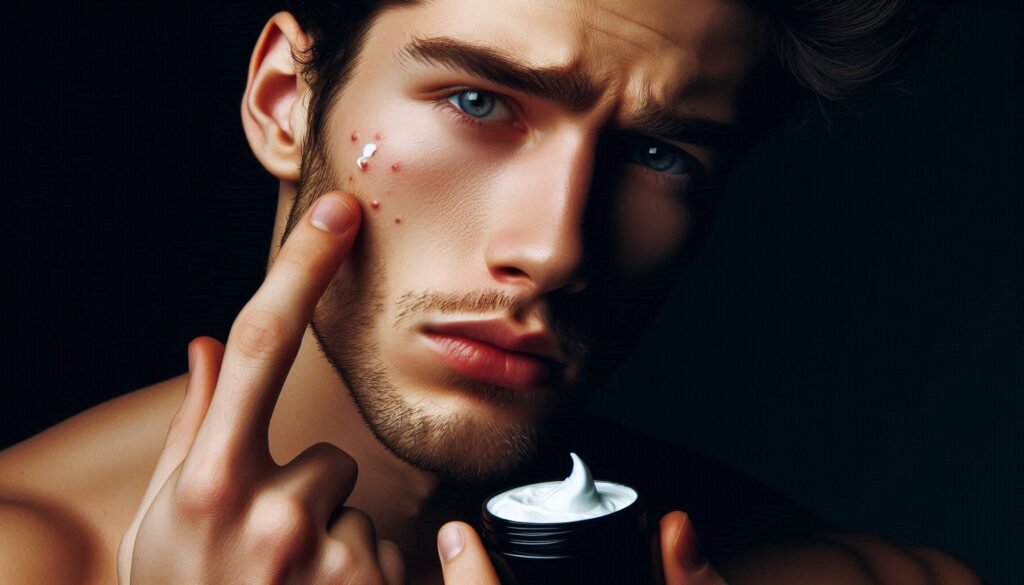
When selecting a moisturizer, it’s just as important to know what to avoid as it is to know what to look for. Here are five key things to steer clear of:
A. Harsh Alcohols: Ingredients like ethanol or isopropyl alcohol can strip moisture from your skin, leading to dryness and irritation, especially for those with sensitive or dry skin.
B. Fragrances: Synthetic fragrances can cause allergic reactions and irritation. Opt for fragrance-free products to minimize the risk of skin issues.
C. Heavy Oils: Ingredients such as mineral oil or petroleum can be too heavy for oily or acne-prone skin, leading to clogged pores and breakouts.
D. Excessive Exfoliants: Products with strong exfoliating agents, like high concentrations of glycolic or salicylic acid, can irritate dry or sensitive skin.
E. Comedogenic Ingredients: Avoid moisturizers that contain ingredients known to clog pores, such as certain silicones or heavy waxes, particularly if you have oily or acne-prone skin.
By avoiding these ingredients, you can ensure that your moisturizer supports your skin’s health rather than hindering it. Always read labels carefully and choose products that suit your skin type.
7. Steps To Choose A Best Moisturizer For Skin
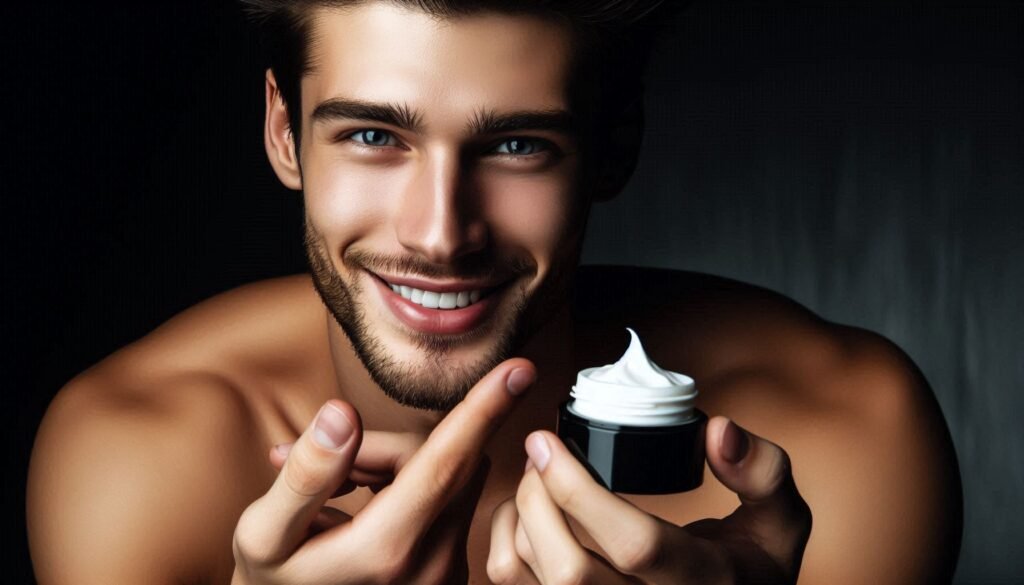
Now that you understand your skin type, the key ingredients and what to avoid, Here’s a step-by-step guide to help you select the perfect moisturizer:
Step 1: Identify Your Skin Type
Determine if your skin is oily, dry, combination, sensitive, or normal. This is crucial for choosing the right product.
Step 2: Read Labels Carefully
Check the ingredient list for beneficial components and avoid harmful ones. Look for moisturizers tailored to your skin type.
Step 3: Test Textures
Consider what texture feels best on your skin. Creams provide more hydration, while gels are lighter and more suitable for oily skin.
Step 4: Patch Test New Products
Before applying a new moisturizer to your face, do a patch test on a small area of skin to check for any adverse reactions.
Step 5: Consider Your Lifestyle
If you spend a lot of time outdoors, look for a moisturizer with SPF to protect your skin from sun damage.
8. How To Apply A Moisturizer On Your Skin

Incorporating your moisturizer into a daily routine can maximize its benefits. Here’s a simple step-by-step routine:
Step 1: Cleanse Your Skin
Always start with a gentle cleanser to remove dirt, oil, and impurities from your skin.
Step 2: Apply Toner (Optional)
If you use a toner, apply it after cleansing to help balance your skin’s pH.
Step 3: Apply Your Moisturizer
Use a pea-sized amount and apply it evenly over your face and neck. Don’t forget to moisturize any dry areas.
Step 4: Use Sunscreen During The Day
In the morning, follow your moisturizer with a broad-spectrum sunscreen to protect your skin from harmful UV rays.
9. Top 5 Moisturizers For Your Skin
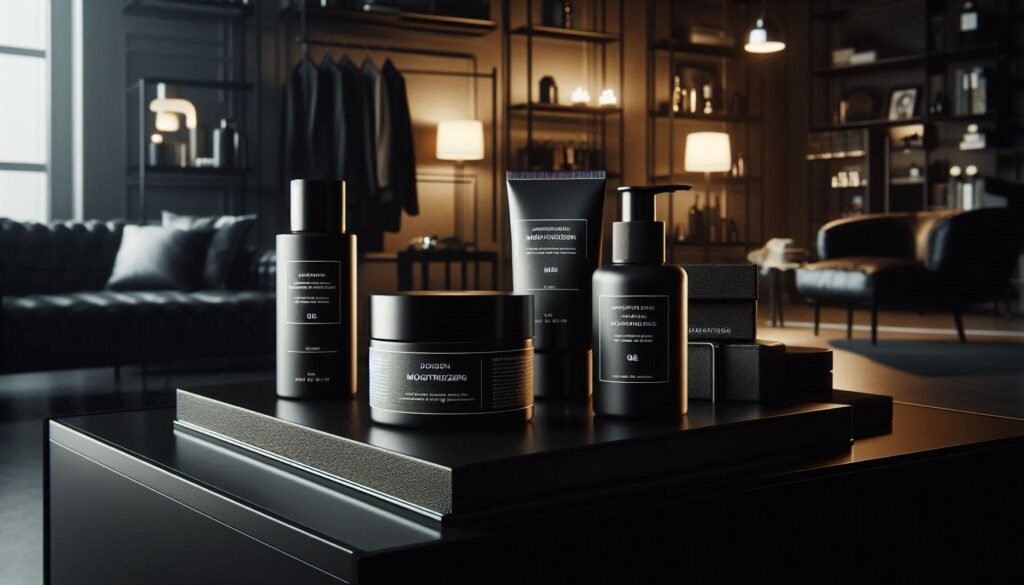
Here’s a list of some top-rated moisturizers based on skin type:
1. Neutrogena Hydro Boost Water Gel
For Oily Skin, Lightweight, oil-free gel that provides intense hydration with hyaluronic acid.
2. CeraVe Moisturizing Cream
For Dry Skin, Rich cream with ceramides and hyaluronic acid that deeply hydrates and restores the skin barrier.
3. Clinique Moisture Surge Hydrator
For Combination Skin, A refreshing gel cream that provides balanced hydration for both dry and oily areas.
4. Vanicream Moisturizing Cream
For Sensitive Skin, Fragrance-free and hypoallergenic, suitable for sensitive skin that needs gentle hydration.
5. Cetaphil Daily Hydrating Lotion
For Normal Skin, A Lightweight lotion that provides long-lasting hydration without feeling greasy.
Conclusion
Choosing the right moisturizer is essential for maintaining healthy skin. By understanding your skin type and the ingredients that benefit or irritate it, you can select a moisturizer that meets your specific needs.
Remember to prioritize hydration and choose products that cater to your lifestyle and skin conditions. With the right moisturizer, you’ll achieve soft, smooth, and radiant skin!
FAQs
So You have gotten all the answers about how to choose a moisturizer right for your skin, or how to choose a moisturizer right for your skin for men, or how to choose a moisturizer right for your skin that suits your face…
Like This Also Read- How To Choose A Face Serum Right For Your Skin: A Complete Guide





